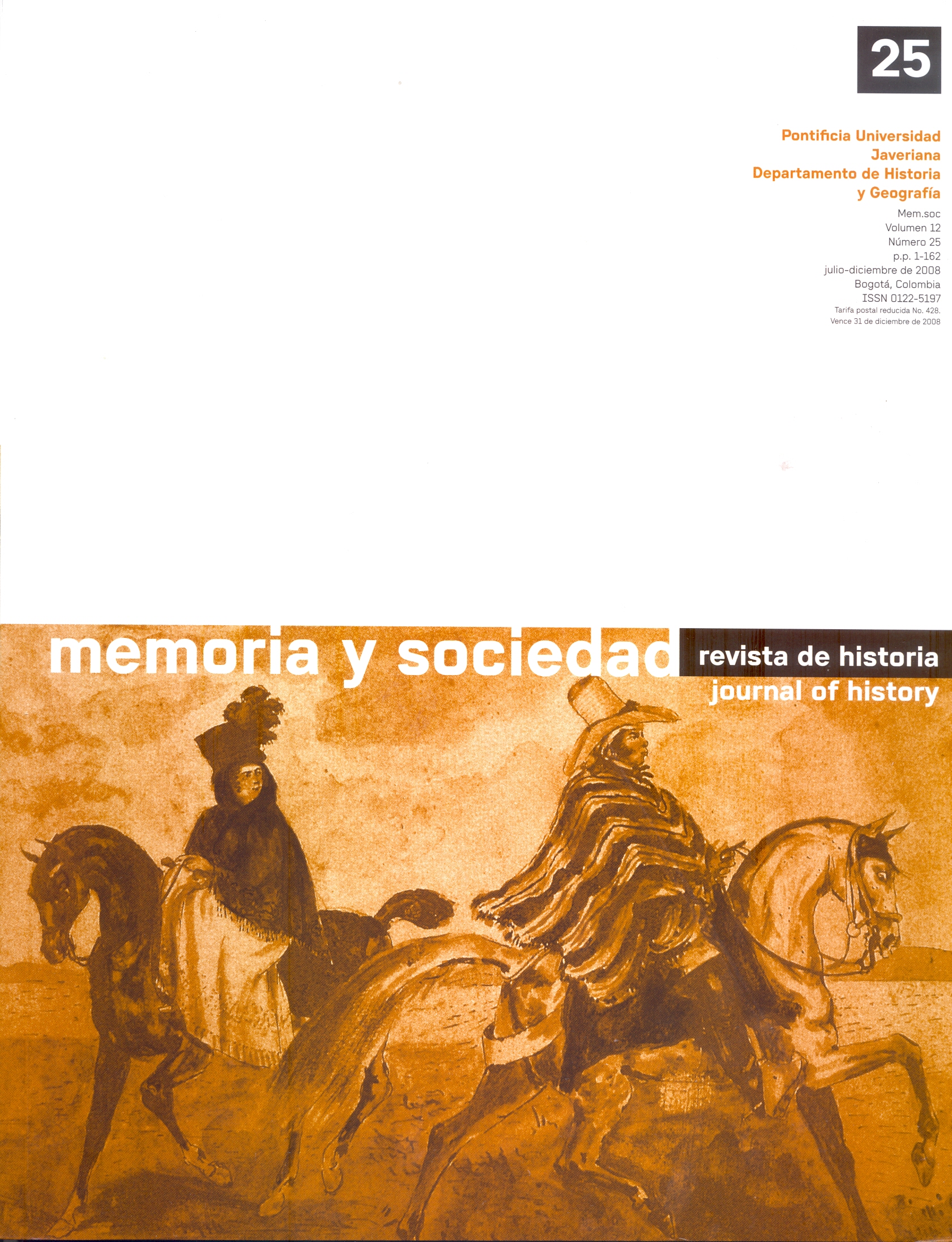Resumen
Este artículo reflexiona sobre el significado que tienen la esclavitud y su abolición en la formación de lo público-político, entendido como los referentes comunes que regulan las relaciones sociales y los criterios de legitimación compartidos por quienes se perciben como miembros de la sociedad. Pregunta por el papel de la población esclavizada en el proceso de construcción de los referentes de ciudadanía y república en la primera mitad del siglo XIX. El sistema esclavista inhibió la participación de los esclavos en la construcción de lo público. Pese a la resistencia de esta población y, después de la independencia, a los intentos de un sector de la élite por convertirlos en ciudadanos libres e iguales permitiendo su acceso al espacio de libertad de la república, en el proceso de abolición primaron los intereses y los prejuicios sociales y raciales de los esclavistas, lo que prolongó la abolición formal hasta mediados de siglo.La revista Memoria y Sociedad se encuentra registrada bajo la licencia Creative Commons Reconocimiento 4.0 Internacional. Por lo tanto, esta obra se puede reproducir, distribuir y comunicar públicamente en formato digital, siempre que se reconozca el nombre de los autores y a la Pontificia Universidad Javeriana. Se permite citar, adaptar, transformar, autoarchivar, republicar y crear a partir del material, para cualquier finalidad (incluso comercial), siempre que se reconozca adecuadamente la autoría, se proporcione un enlace a la obra original y se indique si se han realizado cambios. La Pontificia Universidad Javeriana no retiene los derechos sobre las obras publicadas y los contenidos son responsabilidad exclusiva de los autores, quienes conservan sus derechos morales, intelectuales, de privacidad y publicidad.
El aval sobre la intervención de la obra (revisión, corrección de estilo, traducción, diagramación) y su posterior divulgación se otorga mediante una licencia de uso y no a través de una cesión de derechos, lo que representa que la revista y la Pontificia Universidad Javeriana se eximen de cualquier responsabilidad que se pueda derivar de una mala práctica ética por parte de los autores. En consecuencia de la protección brindada por la licencia de uso, la revista no se encuentra en la obligación de publicar retractaciones o modificar la información ya publicada, a no ser que la errata surja del proceso de gestión editorial. La publicación de contenidos en esta revista no representa regalías para los contribuyentes.


